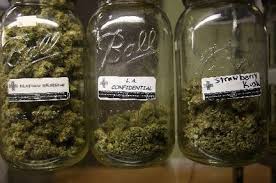Rehab Articles

bulimia nervosa, eating disorder
Bulimia nervosa is an eating disorder, just like anorexia and binge eating, and it can be a dangerous condition for many reasons. If you suffer from bulimia nervosa then you typically binge and purge, eating large amounts of food and then getting rid of it by vomiting or using other measures. This eating disorder can cause malnutrition, and vital body functions may become impaired because of the lack of proper nutrition. Bulimia nervosa can include the following symptoms:
-
Compulsive overeating, often foods high in fat and sugar
-
Inducing vomiting after binging
-
An unhealthy and false body image
-
Exercise that is excessive
-
The use of laxatives
-
Frequent weight changes
-
Abnormal bowel habits and function
-
Constantly dieting
-
Injuries to the hands and knuckles from inducing vomiting
-
Teeth and gums that are swollen or damaged
-
Lack of menstruation
-
Irregular menstrual periods
-
Sores in the throat or mouth caused by excessive vomiting
Treating bulimia nervosa can be difficult, and this is true of most eating disorders. Individual and group counseling is necessary, but you should also receive nutritional counseling and learn stress management techniques and methods as well. Equine therapy can help you rebuild trust, and the individual sessions with a therapist can help you uncover the causes of bulimia nervosa or other eating disorders in your specific case so they can be addressed and then resolved. If you or someone you know has bulimia nervosa or any eating disorder then help and treatment are important. If left unchecked these disorders can be deadly.
Rehab Articles

anorexia nervosa, eating disorder
Anorexia nervosa is a phrase that many have heard, but do you know what this eating disorder is and how it is treated? If you suffer from anorexia nervosa then you have an obsession with food or the lack of it, and you believe that you are overweight even if you are dangerously thin. Many celebrities have suffered from this eating disorder and some have died because they refused to accept treatment and starved themselves to death or suffered cardiac arrest because of severe malnutrition. Symptoms of anorexia nervosa can include:
-
A negative self image
-
Greatly restricting food intake
-
Completely refusing to eat
-
Exercising to an excessive degree
-
Fear of weight gain
-
Withdrawing socially
-
Irregular menstrual cycles
-
A complete lack of menstruation
-
A very thin appearance
-
Irregular heart beat
-
Frequently feeling cold
-
Little energy
-
Irritability
-
Being preoccupied with food
-
Dehydration
-
Skin that is dry and flaky
-
Low blood pressure
Treatment for anorexia nervosa requires individual counseling as well as other treatment methods. Each person who has this eating disorder will have unique issues which cause the problem, and the root of these issues must be uncovered and resolved. Group sessions are also important so that you realize others share your problems and that you are not alone. If you suffer from anorexia nervosa or any other eating disorder then it is important to seek help as soon as possible. The false body image that you have could cause you serious and even permanent physical damage because of self starvation.
Rehab Articles

pot use among teens, medical marijuana
A new study performed by Dr. Esther Choo, who is associated with the Rhode Island Hospital emergency department as an attending physician, has provided some surprising results. States which have legalized medical marijuana have been cautious because many medical professionals and legislators were worried that approving medical marijuana could increase pot use among teens. The new study results show that this is not the case, and pot use among teens in states which have passed medical marijuana laws has not increased significantly. According to Dr. Choo “Any time a state considers legalizing medical marijuana, there are concerns from the public about an increase in drug use among teens.” Choo went on to state that “Researchers should continue to monitor and measure marijuana use. But we hope that this information will provide some level of reassurance to policymakers, physicians, and parents about medical marijuana laws.”
The study examined 20 years of data concerning pot use among teens, and this data covered states without medical marijuana laws and those which have passed medical marijuana in some form. The pot use among teens for each state was examined, and this included the data both before and after any medical marijuana laws were passed. Teen pot use did not go up after a state passed medical marijuana laws, and in some cases the pot use among teens actually saw a slight decline. Many teens are rebellious by nature, and legalizing medical marijuana may take some stigma away from the use of this drug and make it less appealing for teens who are trying to push the boundaries or rebel.
Rehab Articles

binge drinking, alcohol abuse
A new research study shows that even one binge drinking episode can harm your health significantly. The study was performed by the University of Massachusetts Medical School and the results of this type of alcohol abuse were surprising. According to lead study author Gyongyi Szabo, M.D., Ph.D “We found that a single alcohol binge can elicit an immune response, potentially impacting the health of an otherwise healthy individual. Our observations suggest that an alcohol binge is more dangerous than previously thought.”Scientists involved in the study found that a single session of binge drinking can cause bacteria to leak from the gut of an individual into their bloodstream, and this can raise the amount of toxins that are present in the blood. The toxins from the bacteria, referred to as endotoxins, can cause an immune response which leads to the production of immune cells which may be involved in causing tissue destruction in the body, inflammation, and fever.
The National Institute on Alcohol Abuse and Alcoholism or NIAAA defines binge drinking as drinking that causes your blood alcohol concentration to reach at least 0.08g/dL. For an adult female this is typically at least 4 drinks in a two hour period, and for an adult male this is typically at least 5 drinks in a two hour period. There are other factors involved as well, such as the weight of the person and their previous drinking experiences. Until now the dangers of binge drinking did not include facts on a single binge drinking episode and were based on longer patters of alcohol abuse and binge drinking. This study shows that even binge drinking once can have negative consequences on your health.
Rehab Articles

group therapy, substance abuse treatment, individual counseling
Group therapy can provide many benefits during substance abuse treatment, as long as this type of therapy is provided by a well trained professional and is used appropriately. Group therapy works best when used along with individual therapy for substance abuse treatment, and the group approach can offer a number of benefits that can help you achieve a more permanent recovery and lower your relapse risks. One advantage with this therapy type is positive peer support, something that is not received with individual therapy and counseling. Members of the group also provide pressure for the individual to avoid drug or alcohol use. A big issue with substance abuse is a sense of isolation, and taking part in group therapy can eliminate this feeling.
During substance abuse treatment group therapy can help each participant see a success story. When one member of the group succeeds this can create a positive response from other group members. Group therapy also allows each person to see that others share the same struggles and human failings, and this can be an important part of the recovery process. Therapy sessions have a family like environment, and members can provide positive feedback and advice to each other. New members may find the support and resources offered by group therapy during substance abuse invaluable. Encouragement is important during the recovery process, and group sessions allow this encouragement to be offered by peers. When group and individual therapy are combined the results can be surprising, and your relapse risks can drop significantly.



